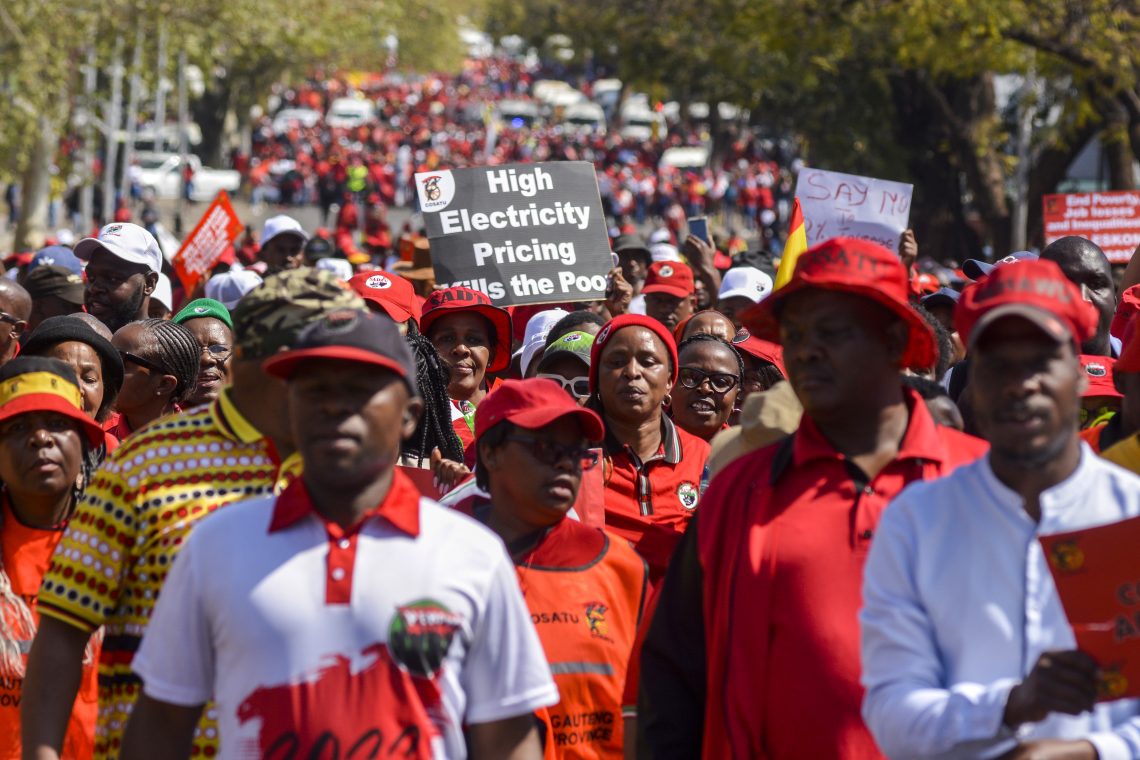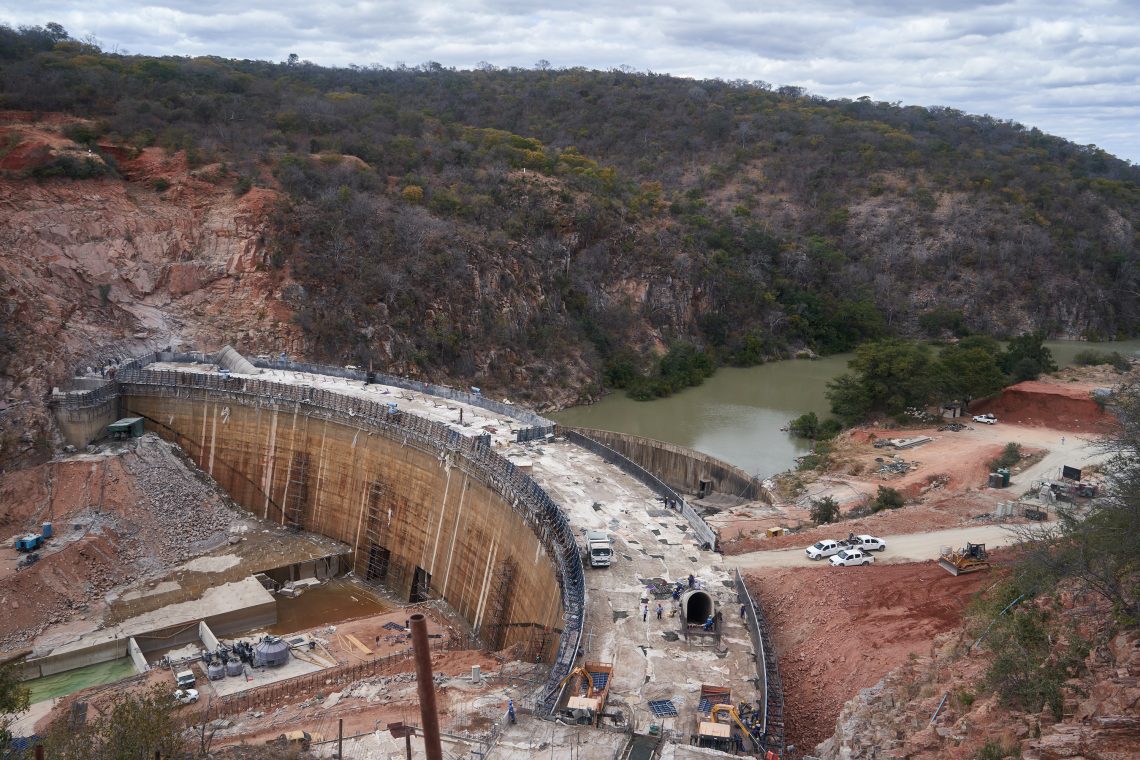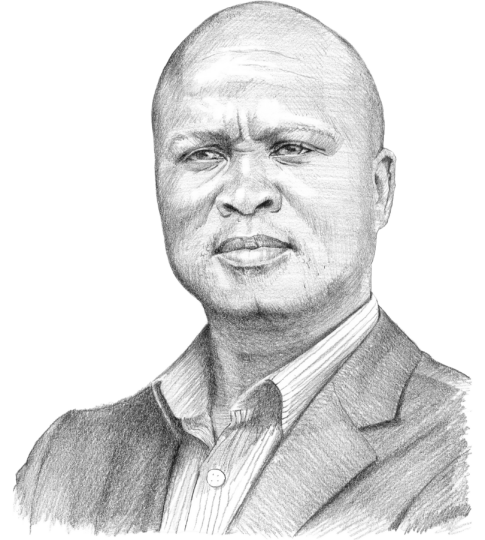Can Southern Africa take on inflation?
With elections ahead, Zimbabwe and South Africa will have to risk public backlash in order to cut rising prices.

In a nutshell
- South Africa and Zimbabwe are facing high inflation and unemployment
- Policy efforts to contain prices will be politically unpopular
- Looming elections will shape governments’ economic plans
As national governments continue to battle the crippling economic effects of Covid-19, inflation has emerged among the most immediate threats to social stability. Triggered by the pandemic, central bank policies and the war in Ukraine, among other factors, inflation has engulfed the global economy and exposed its vulnerability to geopolitical shifts.
Rising living costs have also shaken governments across various countries, including in many democracies, as citizens grow agitated with a situation their leaders seem unable to address. The post-pandemic political atmosphere was always set to be fraught with social tensions; this has been compounded by a crisis of legitimacy for the many governments that mismanaged Covid-19 intervention funds.
Fiscal trouble
Even before the pandemic, most economies in the Southern Africa Development Community (SADC) faced slowing growth and rising youth unemployment. Investment in public infrastructure – and the value realized for the costs of those projects that did happen – were already areas of concern.
Major infrastructure in Africa is increasingly built via Chinese lending, and the trickle-down benefits of such projects to their host economies have been questionable, as countries often struggle to realize the economic value and pay back the loans. Now, policymakers must contend with these preexisting structural challenges. Unemployment, inequality and poverty across the continent were already at high levels, threatening social stability.
The pressure on policymakers to align with the public favors populist responses that exacerbate macroeconomic challenges.
In a visit to Zimbabwe in September, International Monetary Fund staff lauded the government’s efforts to stabilize the economy amid global shocks. Inflation in Zimbabwe stood at 285 percent in August, as the country sought to emerge from the pandemic shock. It had faced a dire situation before the pandemic, and will require more than currency adjustments to return to a stable fiscal path.
Amid high unemployment (33.9 percent), South Africa is also battling a rising cost of living. Before the pandemic, sovereign rating agencies were concerned about South Africa’s growing deficit, particularly the rising public sector wage bill. South Africa’s Treasury had since committed to fiscal consolidation, pledging to rein in public sector wages and let go of some troubled state-owned entities, such as South African Airways.
But political interest in belt-tightening was absent, and trade unions vowed to resist any measures to curb their salaries. This has strained relations between labor, business, and government after the pandemic.
Political will
Regional economic powers like South Africa are seeing stagflation and widening deficits, after massive pandemic spending amid high unemployment and slow growth. Due to the fragility of political order in the region, fighting inflation and pursuing fiscal consolidation while still maintaining political stability will be a delicate balance.
Responding to high fuel and food costs, South African trade unions have kicked off a series of “shutdowns” and protests to publicize worsening labor conditions. In July, government workers in Zimbabwe went on strike to demand their pay in American dollars, due to the collapse of the national currency. Public sector workers in the country, including teachers and health professionals, have for years pressured the government over hyperinflation.

Dealing with today’s inflation in the SADC will come down to policy interventions and the political will to ensure economic stability. Monetary authorities will have to focus on stabilizing currencies despite political pressure. Treasuries, meanwhile, will have to choose between managing budgets to ensure fiscal consolidation or yielding to political expediency.
Scenarios
Zimbabwe and South Africa are headed toward contentious elections in 2023 and 2024, respectively. Both ballots could bring major policy shifts, even altering the general political order. The outcomes in both countries could signal important changes affecting macroeconomic imbalances, including government responses to inflation and public support for such measures.
Whether Harare and Pretoria will pursue unpopular policies to manage inflation and implement structural economic reforms hinges on their appetites to risk losing the coming elections. Among the policy discussions underway in South Africa, led by the ruling African National Congress (ANC), is the nationalization of the South Africa Reserve Bank. An ANC resolution seeks to nationalize the privately-owned central bank so it can focus on unemployment, not just monetary policy.
When social tensions escalate due to the high cost of living and macroeconomic imbalances, formulating a sound policy response becomes even more difficult for democratic governments. Such dynamics often fuel populist sentiments, including questions over the legitimacy of financial institutions like central banks. The pressure on policymakers to align with the public favors populist responses that exacerbate macroeconomic challenges. Political discord and fragmentation impede governments from attaining the consensus necessary to sustain fiscal consolidation.
SADC leaders are facing questions over their willingness to act in the interests of the people. A decline in credibility, which is exacerbated by corruption, undermines their ability to pursue cost-cutting measures, including cutting public sector wages. Merely extending social funding to despondent unemployed youths, as is happening in South Africa, is proving to be an expensive, short-term solution. Such efforts simply aim at compensating for a lack of policy or aptitude to address structural economic problems.
For governments in South Africa and Zimbabwe, staying in power by pursuing policies only designed to appease an agitated public will bring long-term instabilities – which may eventually become intractable. The prospects of meaningful economic reforms are hampered by the current crisis of legitimacy, and will need major political shifts to happen.








